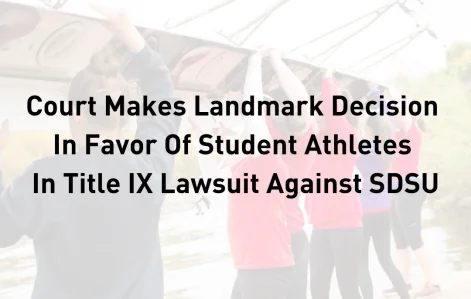Women and people of color have been perpetually fighting for equal rights in the workforce. While great strides have been made in the last several decades, there are still many reasons why the fight for equality at work is far from over.
Unfortunately, one of those reasons is equal pay. Despite the federal Equal Pay Act of 1963 and California’s own legislation that bans wage discrimination on the basis of sex or race, women and people of color across the state and nationwide aren’t being paid the same as their white male coworkers when they work in substantially similar roles.
If you’ve ever wondered if you’re being paid an equal wage, there are a few ways you can find out. Read about a few of these ways below to determine if you might be underpaid.
Do Some Research Online
If you’re wondering if you’re being paid a fair wage, there are a few places online where you can easily compare what you make to self-reported data anonymously posted by others. Sites like Glassdoor and Payscale can help you determine how your wage or salary stacks against those reported by people with similar roles at other companies across the United States. You may even be able to find data from current or former coworkers at your company to get a more focused view of how well you’re being paid.
When you’re comparing rates, however, take into account unseen or unreported factors like how long someone may have been with the company, what kind of prior experience did they have before getting hired, and – if you’re looking at data from another state – how the cost of living can factor into disparities. That said, wide disparities in pay that can’t be easily explained are worth exploring.
Leverage Your Professional Network
Chances are you’re connected by one or two degrees to people who hold your title at a different company or have held it in the past. Asking these professionals what they would consider to be reasonable pay and benefits for the job is one way of doing a more direct and personal type of market research.
Talk With Your Coworkers
Perhaps the most direct way of figuring out whether or not you’re being paid a fair wage is to directly ask your coworkers what they make. This may be the hardest option to pursue because you are probably only likely to get an answer out of coworkers who feel comfortable sharing what they make.
Keep in mind that discussing your wages isn’t something your employer can punish you for doing, but you shouldn’t pursue an answer from a coworker who is unwilling to share their information.
What If I Find Out I’m Being Underpaid?
If you find out you are being paid much differently than coworkers who share substantially similar roles and experience to your own, you should consider reaching out to an employment law attorney for guidance on what to do next.
At Haeggquist & Eck, LLP, we can help you navigate the issues you may need to address in a meeting with your supervisor to discuss your pay at the company compared to your coworkers’. If it appears likely that your pay is artificially lower than your coworkers’ as a result of discrimination, and your company is unwilling to make necessary adjustments, our attorneys can advise you of next-step options for taking legal action.
By working with an employment lawyer from Haeggquist & Eck, LLP, you can recover the fair and just compensation you deserve from an employer who violated your right to equal pay.
For more information about how we can help, schedule a free consultation by calling (619) 342-8000 or by filling out our online contact form.





